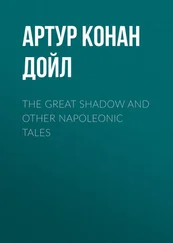Although , mused Fouché in his diaries, in spite of the fact that royalist attempts to reinstate the monarchy have been crushed long ago, anything may happen: some fanatic might suddenly decide to repeat the same joke on the Emperor that they played on the Duke of Angiens and the Prince of Condé. Conspirators supported by England have still not given up on schemes to reinstate the Bourbons on the French throne.
To say that Talleyrand was furious is to say nothing. It was thanks to his efforts that Russia's long resistance after the battles of Putulsk on December 26 and Preussisch Eylau on February 6, and the Battle of Friedland on June 14, had ended on July 7 with the touching Peace of Tilsit.
Napoleon and Alexander I had kissed. Alexander, forgetting the epithet «usurper,» bestowed not so long ago by his Empress mother, had called Bonaparte «brother,» embraced him tenderly, and drunk to brüderschaft…
For the Emperor to disappear without informing him, the main «culprit» in the Peace of Tilsit, did not bode well for Talleyrand. He did not trust Napoleon. The Emperor's decampment, without even wishing to consult him, was additional evidence of the correctness of his thoughts.
It seemed as though no one could disturb the Peace of Tilsit, which promised both sides not inconsiderable acquisitions.
Although Russia, in signing the agreement, ceded its Mediterranean conquests and evacuated the Ionian Islands, in return, she gained the vast Belostok Region. And, in return for Alexander's promise to support Napoleon in the war against England and join the Continental Blockade, Napoleon had promised to support him in the fight against Sweden and Turkey. Although, as he admitted that same day to Talleyrand, he was by no means prepared to yield either Constantinople or the Bosphorus to Alexander.
This, then, was the reason for the next steps taken by the Emperor, who never did become accustomed to unhurried diplomacy. His gaze was turned toward the northern shores of the Black Sea. There, where since 1803, Armand-Emmanuel du Plessis, better known to the world at large as the Duke of Richelieu, had settled as an emigrant.
Richelieu, grandnephew of the well-known cardinal who had governed France during the reign of Louis XIII, had fled after the revolution to Russia and Alexander's protection. From the hands of the Tsar, who affably welcomed the distinguished refugee, he had received a charter to open up new lands, becoming Governor of Odessa and Governor General of New Russia, the area between the Dniester River and the Caucasus.
The Emperor's daring might have been envied. He ought not to have occupied himself with feats of personal bravery as well. His reckless acts, which another might call insane, possibly were just that. But if Napoleon had been lacking in these qualities, he would scarcely have become a marshal, let alone an emperor.
Thus, the ink was hardly dry on the Tilsit Agreement, when, somewhere between July 20 and 25, 1807, the Emperor visited Odessa. He was dressed in women's clothing and bore documents in the name of his sister's governess.
It is difficult to say how his negotiations with Richelieu went. They lasted two days, after which the Emperor, wearing the same clothes in which he had appeared in Odessa, departed whence he came.
From Richelieu's letters to the King's brother in London, it is known only that Napoleon offered the Duke the title of King, should he, in case of a possible war with Russia, side with the Emperor and proclaim the territory under his control the Kingdom of Odessa.
Richelieu answered with a decided refusal. He did not arrest the «usurper»: the nobleman's code of honor did not permit it. Besides, he had always disdained the secret police, and did not want to besmirch his name…Having reaffirmed his loyalty to the crown and explained to the count his motives for not deciding to perform the functions of a policeman, the Duke requested that the contents of the letter not be divulged. So as, later on, not to place himself in an ambiguous position at Court.
Richelieu's devotion was generously compensated. Upon the Bourbons' restoration to the throne, as a reward for his faithfulness, the grateful King gave him the post of Prime Minister of France; and Alexander I, the highest order in the Russian Empire-the Order of Saint Andrew the First-Called.
Be that as it may, during his secret visit to Odessa, while he was incognito, Napoleon found himself holed up in the Governor's residence. And, naturally, he spent the night in the women's quarters. As it turned out, his time there was not wasted.
Nine months later, on April 10, 1808 (at every point thereafter, this day would exert its influence upon our family in a most unexpected manner), 19-year-old Italian servant girl Luisa Ravelli gave birth to a son.
He was christened by a Catholic priest and, according to the young mother's wishes, entered in the church registry under the name of Joseph. Incidentally, this was the name of Bonaparte’s older brother. When, two years later, Luisa chanced to discover that on that very day, April 10, 1810, the Emperor had married the daughter of the Emperor of Austria-Maria-Luisa-she was terribly upset, seeing this as a bad omen. She confessed to her priest; and the latter, having pardoned her sin, counseled her to tell no one of her meeting with the Emperor, and, henceforth, to name her son in the Russian manner-Yosif.
Until the age of thirty-eight, Yosif lived in total ignorance of his true father, firmly believing the story told him by his mother, that his father had died in Odessa in 1812, during a plague epidemic that broke out in the city and carried off a quarter of its people.
But in 1848, through rumors that reached Odessa, Luisa found out that the Bonapartist party had acquired unprecedented influence in France; and nostalgia for the empire outweighed all other feelings. Hoping that her son's fate would take a decided turn for the better, she told him the truth about his real father.
What could Yosif change in his life, having found out the truth? Precisely nothing. Even if the story his mother told him were true, which he doubted, it could reflect in no way on his situation. For to demonstrate the fact of the Emperor's having visited Odessa was impossible.
For this reason, he continued his tranquil life, without taking any steps to change it.
As for the Emperor's many offspring, the French secret police began thinking seriously about them after, in the 1848 presidential elections, three quarters of the French electorate voted for Bonaparte's nephew, Louis-Napoleon; and the latter, taking over as head of the Republic, brought into government service his own cousin, Bonaparte's extramarital son Count Alexandre Walewski.
Four years later, following in his uncle's footsteps, Louis-Napoleon abolished the Second Republic and proclaimed a new empire, taking the title of Napoleon III. This happened in November 1852.
However, the next year began with an attempt on his life. An unsuccessful one, luckily. But, recognizing the danger that could come from the descendants of the Bourbons, Louis decided to insure his life-to save himself from foreign pretenders to the French throne. And at this point, the Minister of Police placed a document on his table-a long-ago dispatch from the dean of the Catholic church in Odessa to the Pope, intercepted at some point by French agents in Rome…
The Emperor demanded a detailed report. It turned out that Luisa Ravelli had died back in 1850, but her son, Yosif Ravelli, was even now alive and well. Moreover, soon after his mother's death, he had married; and three years ago, he had become the father of a son-Grigory Ravelli.
Tension mounted in relations with Russia. The Emperor understood: the presence in Russia of a pretender to the French throne would allow the Tsar to carry on a double game with respect to France, provoking intrigues and coup attempts.
Читать дальше












